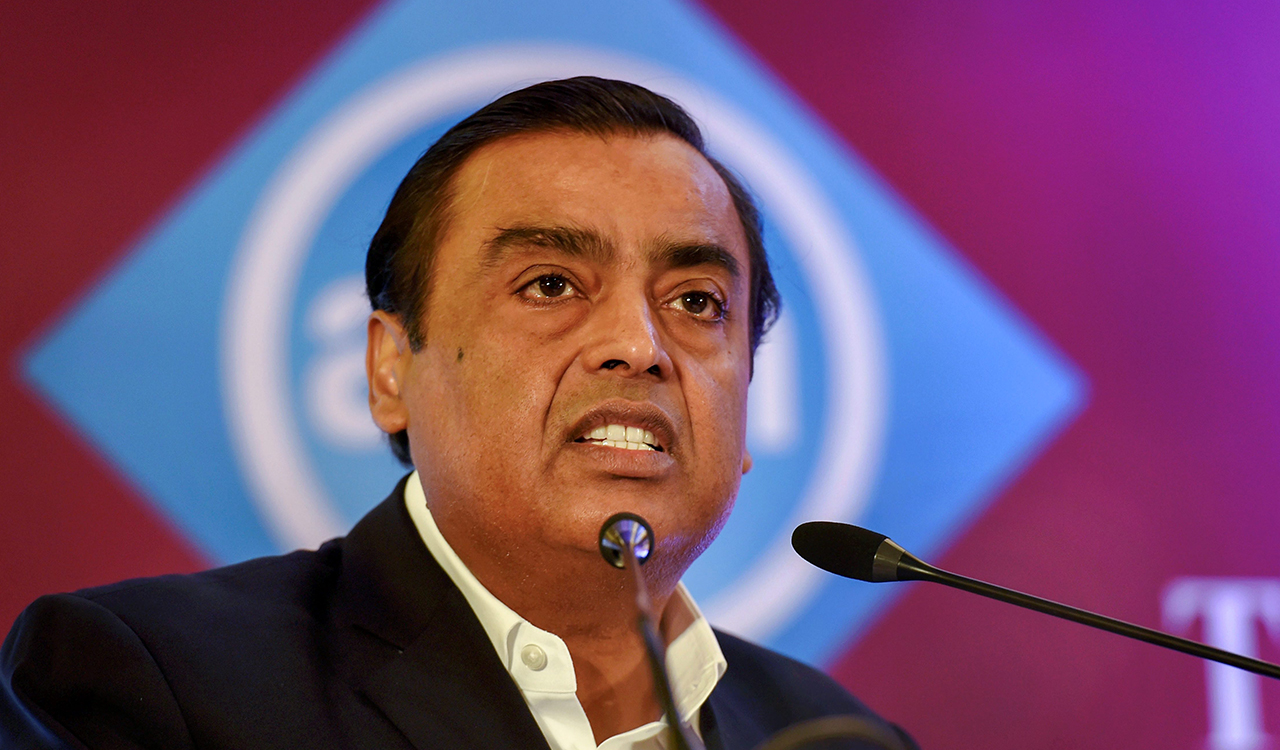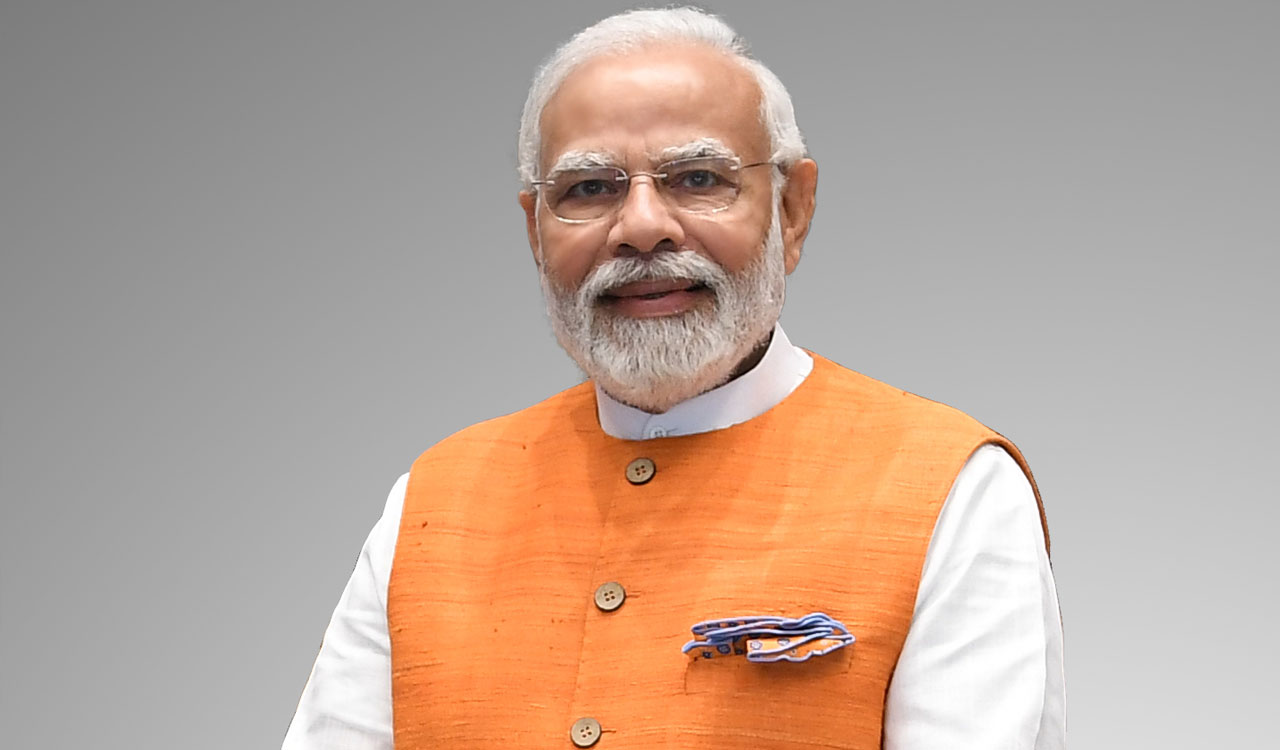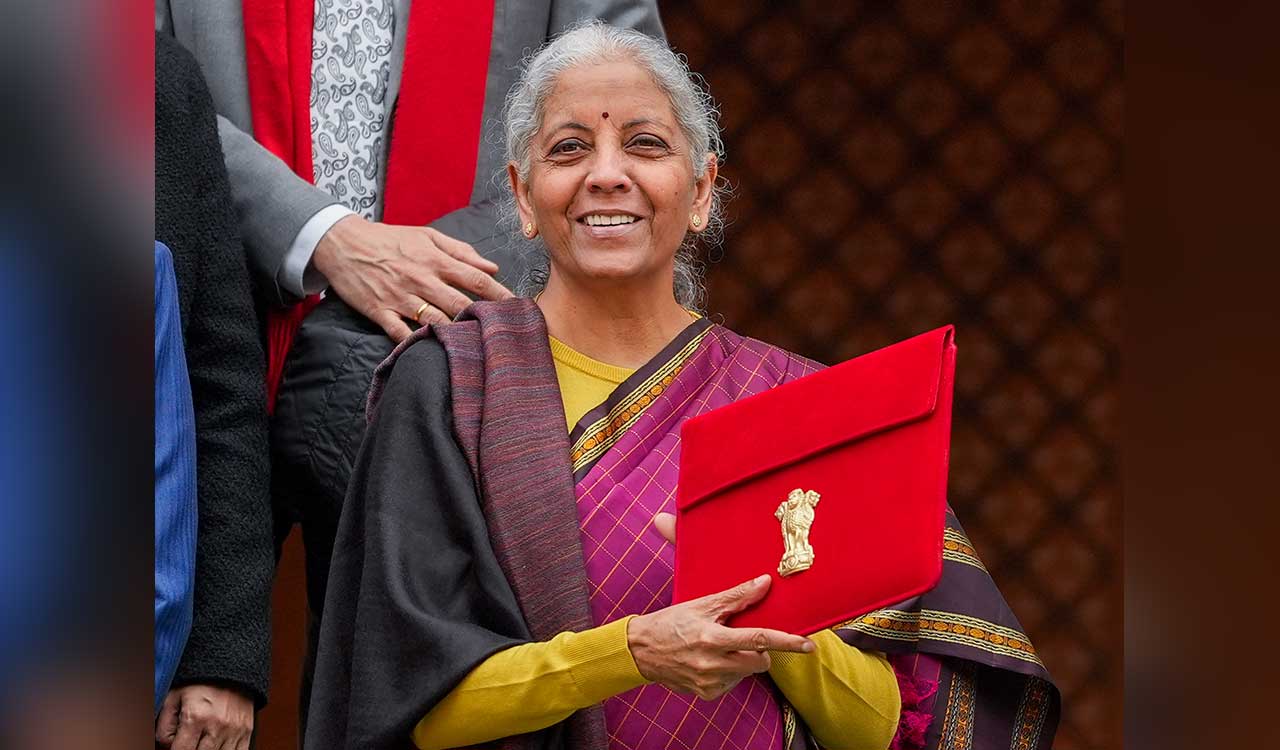Opinion: Meaningful climate action
A sustainable and developed future requires a delicate balance between economic growth and climate action

By PK Joshi
The Economic Survey is an annual document presented by the Ministry of Finance ahead of the Union Budget. Since the financial year 1958-59, this non-binding document on the state of the economy facilitates a better appreciation of mobilisation and allocation of resources in the Union Budget.
Probably, the Economic Survey of 2017-18 for the first time referred to ‘Climate and Climate Change’ while addressing Agriculture. Following it, the subsequent surveys (2021-22 and 2022 23) discussed ‘Sustainable Development and Climate Change’ and ‘Climate Change and Environment: Preparing to Face the Future’, respectively. The recent Economic Survey (2023-24) detailed ‘Climate Change and Energy Transition: Dealing with Trade-offs’ and ‘Climate Change and India: Why we must look at the problem through our lens’, two dedicated chapters in the report. The latter brings great interest as it resonates with India’s ethos of a harmonious relationship with nature and the importance of this in addressing the worldwide challenges of climate change.
In the recent past, India has significantly contributed to the United Nations Climate Change Conferences. The country has emerged as a key player in several international initiatives aimed at combating climate change. These include the International Solar Alliance (ISA), One World One Sun One Grid, the Coalition for Disaster Resilient Infrastructure, Infrastructure for Resilient Island States (IRIS) and the Leadership Group for Industry Transition (LeadIT).
Tightrope Walking
India, despite being one of the fastest-growing economies globally, finds itself in a unique position regarding climate change. With an annual per capita carbon emission (1.91 CO₂ emissions in tonnes per capita) of only about one-third of the global average (4.66), it envisions a ‘Viksit Bharat’ by 2047. This vision, coupled with the goal of achieving Net Zero carbon emissions by 2070, drives India’s interventions for high and robust economic growth that is inclusive and environmentally sustainable. Balancing development needs with a low-carbon pathway paves the path to this vision, compounded by the need for stable, reasonably priced energy to power ambitious targets. Meeting these requirements while ensuring development, especially when financed predominantly through domestic resources, is akin to walking a tightrope.
India occupies a peculiar space in the global climate debate as it is the third-largest carbon dioxide emitter in absolute terms, trailing only China and the United States. This paradox highlights the scale of India’s population and the much-needed rapid pace of its development. Despite this, India stands for its commitment to sustainability and climate action, evidenced by its significant achievements in renewable energy in addition to emission intensity reduction.
The emission intensity of an economy measures the total amount of greenhouse gases (GHG) emitted for every unit increase in gross domestic product (GDP). According to the Economic Survey 2023-24, India has made notable strides by reducing the emission intensity of its GDP by 33% from 2005 levels by 2019. Initially, India’s Nationally Determined Contributions (NDC) aimed for a 33% reduction, but this target has been updated to a more ambitious 45% reduction by 2030.
Renewable Energy
As of 2023-24, 45.4% of the country’s installed electricity generation capacity comes from non-fossil sources, including solar, wind and hydropower. A record 18.48 GW of renewable energy capacity was added in 2023-24, with solar installations contributing 12.78 GW and wind energy 2.27 GW. To meet its target of 500 GW of renewables by 2030, the country will need to add at least 50 GW annually for the next six years.
India projects that its energy needs will grow 2-2.5 times by 2024, necessitating a balanced approach to energy transition. This must consider resource limitations and the need for resilience to climate change. Moving away from over-dependence on coal and fossil fuels, which constituted below 50% of energy sources in the first quarter of 2024, is crucial for sustainable development.
Green Bonds
One of the milestone decisions towards this is Sovereign Green Bonds (SGrBs), a type of government debt specifically designed to fund projects that accelerate the transition to a low-carbon economy. The funds raised through SGrBs are exclusively earmarked for green projects, covering areas such as new and renewable energy, the environment, forests, climate change, housing, urban affairs and railways. To broaden the investor base, the Reserve Bank of India (RBI) has permitted eligible foreign investors to invest in these bonds. Similarly, the Green Credit Programme (GCP) incentivises eco-friendly actions by offering ‘green credits.’ Recently, States like Madhya Pradesh and Telangana have approved thousands of hectares of degraded forest land for greening exercises under the GCP.
India is championing to balance economic development with meaningful climate action while emphasising inherent sustainability in lifestyles. ‘Vasudev Kutumbakam’ emphasises a harmonious relationship with nature, rooted in the principles of sustenance. This contrasts sharply with the overconsumption prevalent in developed countries. The Western approach of ‘One-Size-Fits-All’ to climate change is often seen as alarmist and fails to account for the diverse needs of developing countries like India.
The Intergovernmental Panel on Climate Change (IPCC) promotes ”accelerated and equitable mitigation pathways,’ which do not always align with the developmental priorities of nations like India. Western solutions frequently prioritise market-based strategies to sustain high consumption levels rather than addressing the root issue of overconsumption. This obsession with high-tech solutions, such as solar-powered buildings and electric vehicles, overlooks the importance of lifestyle changes that are more suited to the ethos of sustainability.
Pro-planet Choices
India’s approach to climate change solutions, therefore, focuses on making deliberate, pro-planet choices without compromising the quality of life. This philosophy nurtures missions like LiFE (Lifestyle for Environment), announced by the Prime Minister at the 2021 UN Climate Change Conference. Mission LiFE seeks to bring individual responsibility to the forefront of the climate fight, deriving principles from ancient Indian philosophy. Technically, the mission focuses on themes such as reducing waste and e-waste, adopting healthy lifestyles and sustainable food systems, saying no to single-use plastic, saving water and conserving energy.
India’s journey towards a sustainable and developed future is complex, requiring a delicate balance between economic growth and climate action. The insights from the Economic Survey 2023-24 reveal the country’s proactive approach to addressing these challenges.

(The author is Professor with School of Environmental Sciences, Jawaharlal Nehru University, New Delhi. Views are personal)
Related News
-
Odisha government reviews protection of Lord Jagannath temple lands
6 hours ago -
Iran holds military drills with Russia as US carrier moves closer
7 hours ago -
This is taxpayers’ money: Supreme Court raps freebies culture
7 hours ago -
Hyderabad: Residents oppose Gandhi Sarovar Project over ‘forcible’ land acquisition
7 hours ago -
Australia level series as Indian women slide to 19-run defeat in second T20I
8 hours ago -
Karnataka beat Uttarakhand in semis, to face Jammu and Kashmir in Ranji final
8 hours ago -
Five Osmania varsity players in South Zone squad for Vizzy Trophy
8 hours ago -
Disciplined West Indies bundle out Italy with ease, tops Group C in T20 WC
8 hours ago




